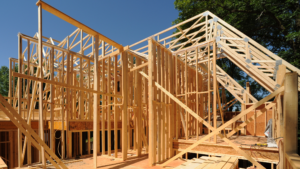New Zealand Real Estate agents are noticing a rise in interest from overseas buyers keen to buy residential property in NZ, after the announcement of National’s tax policy. These tax changes will remove restrictions on overseas buyers, while imposing a 15% tax on residential property purchases.
In 2018, the Labour government brought in the Overseas Investment Amendment Act, banning foreigners from purchasing existing property in New Zealand with the exception of New Zealand citizens or residence class visa holders ordinarily living in New Zealand, and citizens of Australian and Singapore with whom New Zealand has free trade agreements. Designed to try and take some of the heat out of the residential property market by reducing speculation and potentially improving affordability, the measures failed to slow the rapid rise in house prices, which continued increasing until late 2021 when domestic and global economic pressures – including inflation and rapidly rising interest rates, saw prices start to fall.
The spotlight has fallen back on overseas investors with the release of the National Party’s tax policy, which proposes to end restrictions on foreign buyers purchasing homes worth more than $2 million.
Instead of continuing the ban, National plans to tax foreign buyers 15% of the property’s purchase price with the aim of pulling in around $740 million per year – stimulating the economy and funding tax cuts.
Although questions around the accuracy of this figure and the legality of discriminating against certain overseas investors have yet to be answered, the proposal – if implemented – could see increased spending by new residents from off-shore, potentially creating more employment in places like Queenstown, where many properties are already owned by foreigners.
A recent jump in overseas enquiries reported by New Zealand real estate agents appears to be driven by ex-pats living overseas, as well as Australians and Singaporeans who are unsure if they will be exempt from any new buyer tax. Many are hoping to purchase a property in advance of the new policy’s implementation – should National take power on or soon after October 14. Not surprisingly, enquiry is also coming from foreign investors who have been locked out of the local market since 2018 yet remain keen to buy here.
Speaking on RNZ’s Checkpoint in early September, Caleb Paterson, owner of high-end agency Paterson Luxury, said that the prospect of paying 15% tax on their purchases was unlikely to faze the overseas buyers who have contacted him since National’s plans were announced.
National’s policy document references Vancouver’s 20% foreign buyer tax and many other countries and states also have stamp duties or other similar taxes on overseas residential property transactions, and Paterson said many of the foreign buyers who are currently eyeing up Kiwi real estate practically expect it.
Kayne Wahlstrom says that “as election day looms ever closer FOMO is definitely creeping back in, and the company is noticing more engagement from investors looking to start their investment journey or extend their portfolios”.
“As an offshore buyer, whether you’re a NZ citizen or not, buying a property can be daunting and the key is to determine your end game,” says Wahlstrom.
“Are you chasing capital growth, yield or both? What type of property are you after and how long are you willing to hold it for?”
By contacting an Adviser at Properli, we can remove a lot of the pain points in the process, especially when potential buyers are based offshore and remotely removed from the local market. First things first, if you want to become a property investor, we have a step by step guide of where to start and how to get there!
We can provide financial advice remotely to ex-pat Kiwis, Australian and Singaporean citizens, foreign buyers and also local investors who want to be primed and ready for a potential change of government and begin perusing New Zealand property listings – Try Trade Me Property the largest listing site available.




